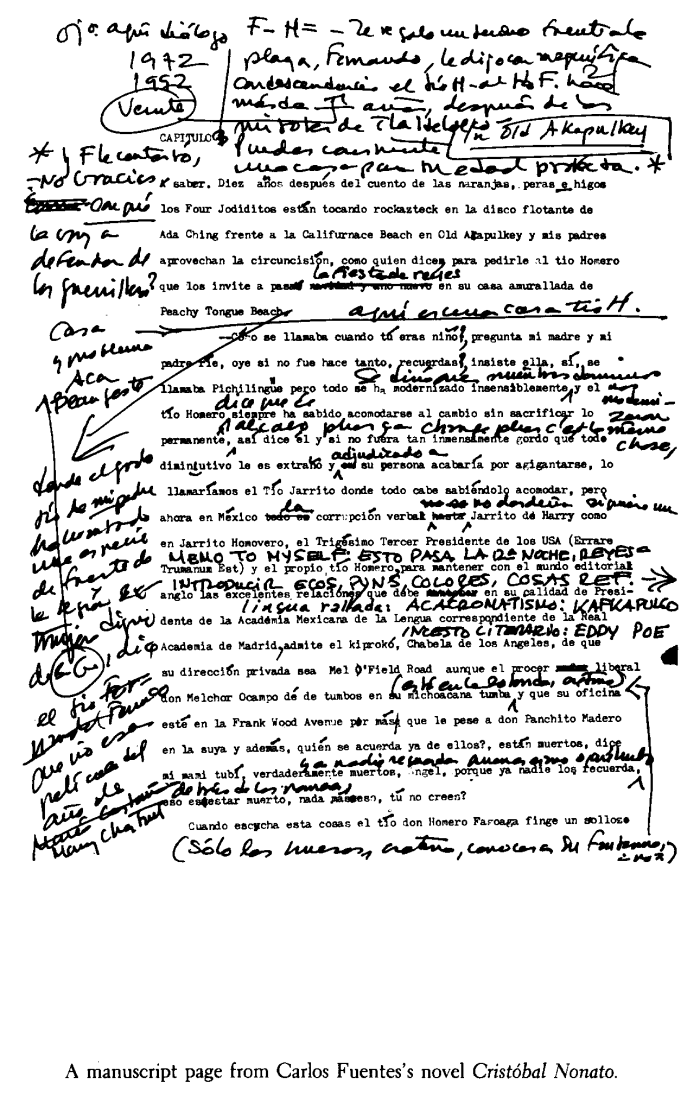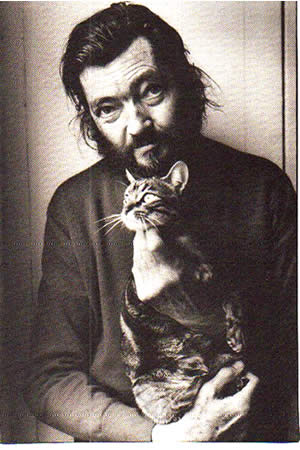I think, perhaps, that I'm a weird reader, at least in this current generational crop, in that I feel immeasurably comfortable and at home in books with devastatingly long and dense paragraphs; minimalism does nothing for me; simplicity does even less; and brevity is, in general, not the soul of wit. Brain-straining fiction is what I crave. Mentally, emotionally, psychically, physically exhausting fiction. I enjoy that sensation of being lost inside a particular fictive world, a world that is as layered, fractured, complicated, disastrous, miraculous, beautiful, mystifying, horrific, and frustrating as our own; and I don't mind one bit when time is completely obliterated. As I see it, if one is enjoying a particular book, why on earth would you want to leave that book? Why would you need room to breath somewhere in the pages? When I'm reading, when I'm deeply, emotionally, and intellectually invested in a work, the pages are the oxygen. I don't need anything else. The best books, for me, are the ones I don't want to end, the ones in which I could remain entrenched and submerged forever. In point of fact, I wholly understand that sensation, of time being nonexistent and being encased in a form of gripping, strangulating nowness in which everything that has ever happened and will happen is happening right now, to me, distilled and acute, like that tiny fly golden-hued and amber-stuck inside a chunk of sap on the trunk of an ancient tree. Attribute this to a background in continental philosophy and world theology as well as just heaps upon heaps of anxiety and insecurity. That said, it's no wonder that I love W.G. Sebald's Austerlitz, who--Sebald, that is--has cited Robert Walser, of whom I am devoted admirer, as a major influence. I will say right now: I do not believe in time.

"Time, said Austerlitz in the observation room in Greenwhich, was by far the most artificial of all out inventions, and in being bound to the planet turning on its own axis was no less arbitrary than would be, say, a calculation based on the growth of trees or the duration required for a piece of limestone to disintegrate, quite apart from the fact that the solar day which we take as our guideline does not provide any precise measurement, so that in order to reckon time we have to devise an imaginary, average sun which has an invariable speed of movement and does not incline towards the equator in its orbit. If Newton thought, said Austerlitz, pointed through the window and down to the curve of the water around the Isle of Dogs glistening in the last of the daylight, if Newton really thought that time was a river like the Thames, the where is its source and into what sea does it finally flow? Every river, as we know, must have banks on both sides, so where, seen in those terms, where are the banks of time? What would be this river's qualities, qualities perhaps corresponding to those of water, which is fluid, rather heavy, and translucent? In what way do objects immersed in time differ from those left untouched by it? Why do we show the hours of light and darkness in the same circle? Why does time stand eternally still and motionless in one place, and rush headlong by in another? Could we not claim, said Austerlitz, that time itself has been nonconcurrent over the centuries and the millennia? It is not so long ago, after all, tht it began spreading out over everything. And is not human life in many parts of the earth governed by the weather, and thus by an unquantifiable dimension which disregards linear regularity, does not progress constantly forward but moves in eddies, is marked by episodes of congestion and irruption, recurs in ever-changing form, and evolved in no one knows what direction? Even in a metropolis ruled by time like London, said Austerlitz, it is still possible to be outside time, a state of affairs which until recently was almost as common in backward and forgotten areas of our own country as it used to be in the undiscovered continent overseas. The dead are outside time, the dying and all the sick at home or in hospitals, and they are not the only ones, for a certain degree of personal misfortune is enough to cut us off from the past and the future. In fact, said Austerlitz, I have never owned a clock of any kind, a bedside alarm or a pocket watch, let alone a wristwatch. A clock had always struck me as something ridiculous, a thoroughly mendacious object, perhaps because I have always resisted the power of time out of some internal compulsion which I myself have never understood, keeping myself apart from so-called current events in the hope, as I now think, said Austerlitz, that time will not pass away, has not passed away, that I can turn back and go behind it, and there I shall find everything as it once was, or more precisely I shall find that all moments of time have coexisted simultaneously, in which case none of what history tells us would be true, past events have not yet occurred but are waiting to do so at the moment when we think of them, although that, of course, opens up the bleak prospect of everlasting misery and neverending anguish."
That sounds like a mission statement.






















